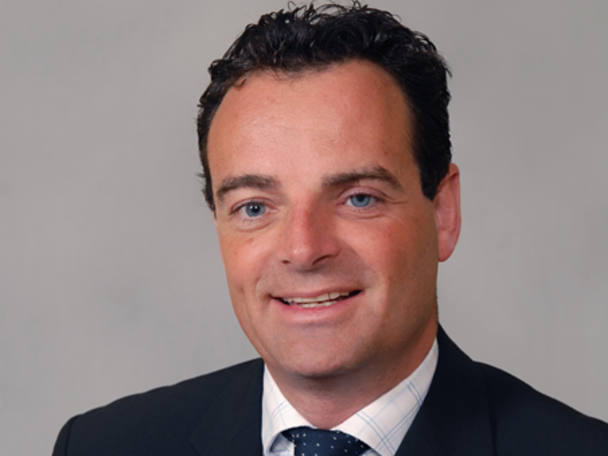Alex Ross is no property bull. The fund manager expects the commercial real estate market to flatline for at least three years and he's less gung-ho about the City office sector than most property brokers. Yet even he thinks property stocks are due a year-end bounce, as investors start to shrug off Europe's sovereign debt problems.
"The equity markets are pricing in a considerable amount of fear," he says. "I'm not saying I know more than anyone else, but my view is that Europe will muddle through. And if we don't get a banking crash and a credit crisis, then we won't see property values hit. Of course, if we do get another credit crisis, then all bets are off."
Most property fund managers don't have to worry about the vagaries of stock market sentiment. But Mr Ross, who runs the open-ended Premier pan-European Property Share fund, is an exception. That's because his portfolio holds shares in listed property companies – the likes of Land Securities, British Land and Hammerson – rather than physical property itself ('bricks-and-mortar').
This is a crucial distinction. Bricks-and-mortar managers dismissively point out that property shares behave more like shares than like property, making property equity funds the more volatile option. Yet property share funds are also far more liquid and flexible. Infamously, New Star International Property, an ill-fated bricks-and-mortar fund, had to shut its doors to redemption requests in 2008 because it could not sell its holdings in time, undermining the whole principle of open-ended funds.
Of course, private investors will also find property share funds interesting for a sneakier reason: they invest in the same publicly listed assets that are available to us. Mr Ross is effectively a specialist stock analyst, with views backed up by his management of a real portfolio. So what kind of property market does he expect over the next few years – and what does that mean for stockpicking?
The manager's expectation of a "flat" market has a rather specific meaning – he thinks the rental yield on property will not fall, as it has done throughout the great bond bull market of the past three decades. Put another way, capital values will not rise as a multiple of rent.
This is important because so-called 'yield shifts', which are dictated by investors' demand for property as an asset class, have been the overwhelming driver of property performance since 2003, according to Mr Ross. First, they pushed all property up; then they brought all property crashing down; finally, from mid-2009, they have pushed top-quality assets back up while leaving everything else (including most of Europe) at sea. Rents, the traditional driver of commercial property returns, have been a neglected side-story.
Now Mr Ross expects yields to be pushed sideways by a delicate balance of opposing forces. Rental yields are still very high compared with bond yields, which has historically been a strong buy signal. But, on the other hand, banks are reducing their property exposure. So, for every yield-hunting sovereign wealth fund there will be a willing seller. Meanwhile, clever property management can still generate rental growth, pushing up property values even as yields flatline.
This analysis is entirely credible. But it is also motivated by the self-interest of hope, for two reasons. First, the yield shifts of the past decade have been traumatic and, combined with the spectacular mistiming of the debt cycle by the vast majority of property managers, disastrous for investors. Mr Ross's fund has lost 32.6 per cent of its value over the past five years.
Second, the yield-driven property market has rewarded asset allocation, not stockpicking. Mr Ross is the first to admit that his fund has not generated significant outperformance against its benchmark, which has fallen 37.9 per cent over the same period. He blames a market that has treated property as a monolithic asset class (as the debt boom made it) rather than a hotchpotch of individual properties. "Good old-fashioned property values" – initiatives to increase rent – should now return to centre stage, he thinks, rewarding good property managers and, by extension, good stock pickers.
Against this background, it's easy to understand Mr Ross's big bet on small companies.
True, the usual property giants with strong cash flow backed by top-quality assets – the likes of Land Securities in Britain and Unibail-Rodamco on the continent – account for three-quarters of his £44m fund. The manager expects decent rental growth from super-prime locations such as the West End, and points out that most of these stocks are trading on attractive discounts after abysmal performance in August and September. But he is staking his real hopes of outperformance on the remaining quarter of his portfolio, which consists of small and mid-cap "value-adders". These include both the established London specialists (Derwent, Great Portland, Shaftesbury, CapCo, CLS) and a wide range of recently launched recovery funds (London & Stamford, Hansteen, Max Property, Metric, Conygar and LXB Retail).
It's an arithmetical truism that small players have a better chance of outperforming a dull average, but in the post-crisis property universe small is beautiful for another reason, too – it's where the entrepreneurial talent is. Many adept property managers sold out of the property boom in 2005-06, only to set up vehicles in 2009-10 to buy into the new cycle at lower valuations.
These 'vulture funds' have not been without their problems – above all, the recovery to date has left them behind because they don't own the plush London assets that have attracted international buyers. Yet they also have big advantages: no debt problems, strong leadership in an environment where it's vital to take the right risks, and sufficiently small scale for those risks to shift the valuation needle. If Mr Ross's market analysis is correct – and good management, not ownership of prime central London pitches, drives future returns – these players will thrive.











